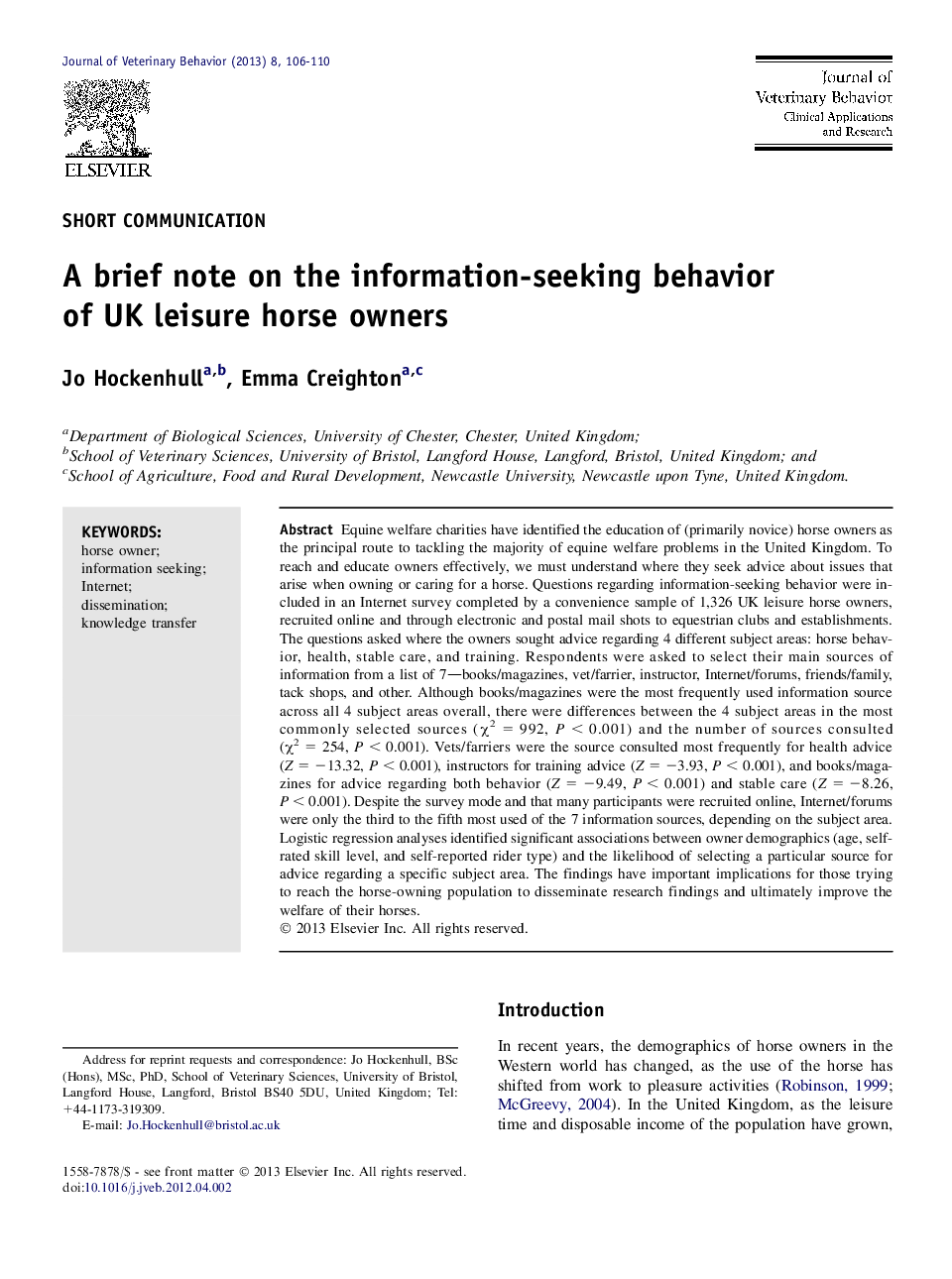| Article ID | Journal | Published Year | Pages | File Type |
|---|---|---|---|---|
| 2399521 | Journal of Veterinary Behavior: Clinical Applications and Research | 2013 | 5 Pages |
Equine welfare charities have identified the education of (primarily novice) horse owners as the principal route to tackling the majority of equine welfare problems in the United Kingdom. To reach and educate owners effectively, we must understand where they seek advice about issues that arise when owning or caring for a horse. Questions regarding information-seeking behavior were included in an Internet survey completed by a convenience sample of 1,326 UK leisure horse owners, recruited online and through electronic and postal mail shots to equestrian clubs and establishments. The questions asked where the owners sought advice regarding 4 different subject areas: horse behavior, health, stable care, and training. Respondents were asked to select their main sources of information from a list of 7—books/magazines, vet/farrier, instructor, Internet/forums, friends/family, tack shops, and other. Although books/magazines were the most frequently used information source across all 4 subject areas overall, there were differences between the 4 subject areas in the most commonly selected sources (χ2 = 992, P < 0.001) and the number of sources consulted (χ2 = 254, P < 0.001). Vets/farriers were the source consulted most frequently for health advice (Z = −13.32, P < 0.001), instructors for training advice (Z = −3.93, P < 0.001), and books/magazines for advice regarding both behavior (Z = −9.49, P < 0.001) and stable care (Z = −8.26, P < 0.001). Despite the survey mode and that many participants were recruited online, Internet/forums were only the third to the fifth most used of the 7 information sources, depending on the subject area. Logistic regression analyses identified significant associations between owner demographics (age, self-rated skill level, and self-reported rider type) and the likelihood of selecting a particular source for advice regarding a specific subject area. The findings have important implications for those trying to reach the horse-owning population to disseminate research findings and ultimately improve the welfare of their horses.
